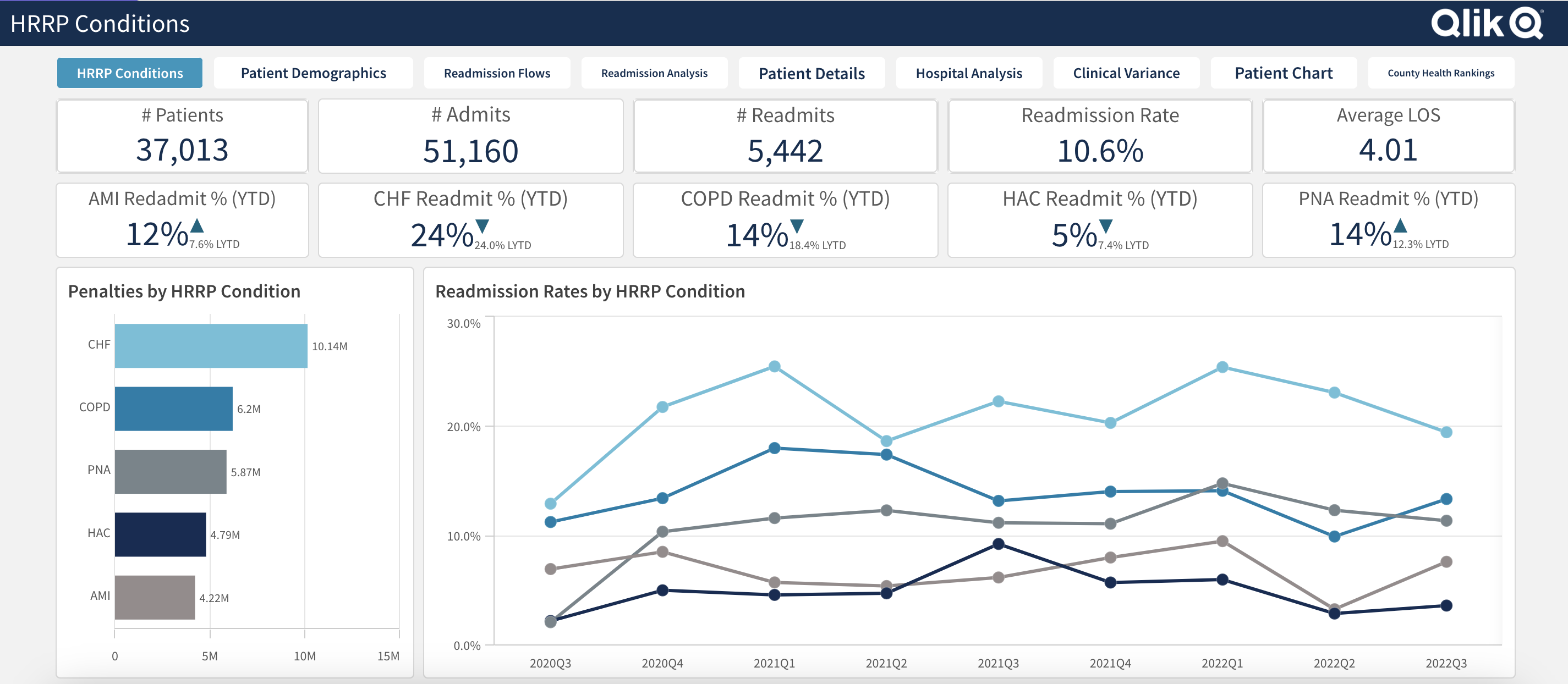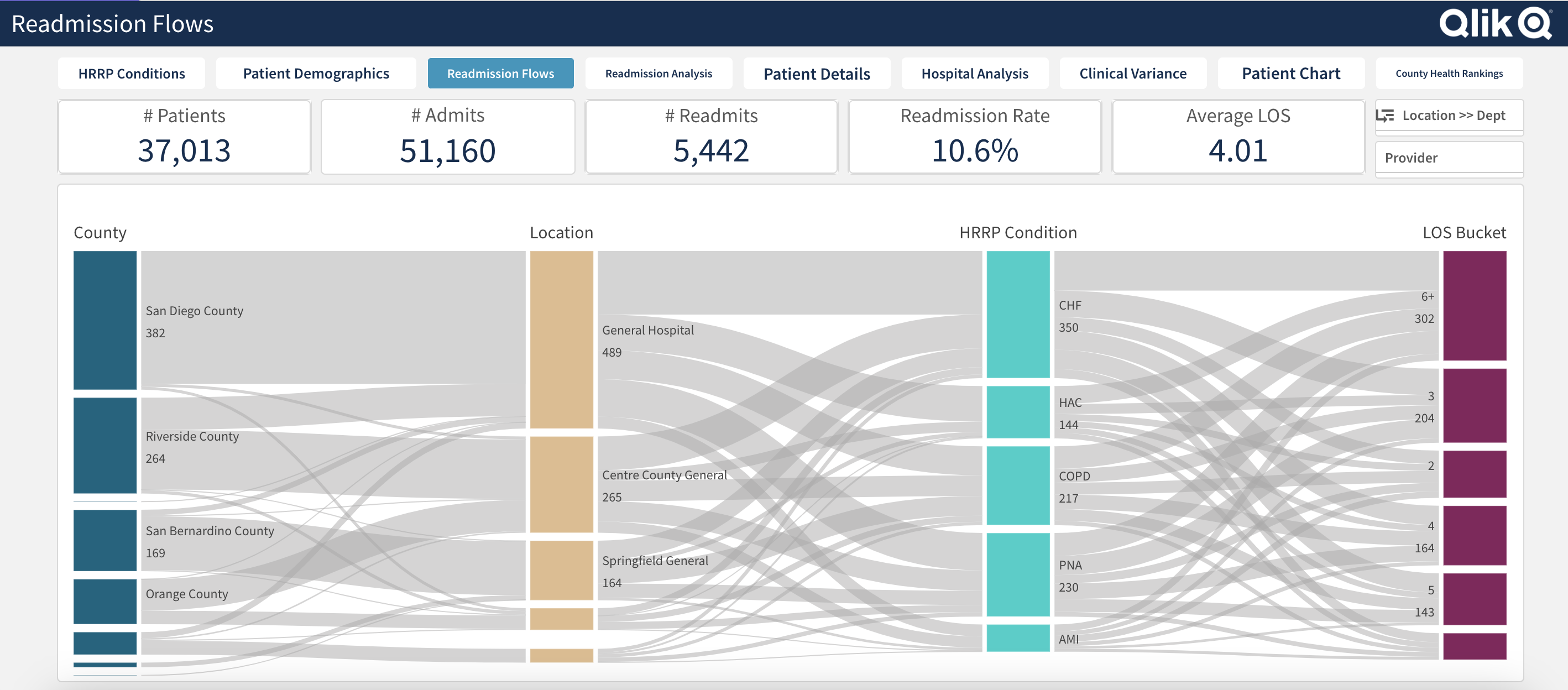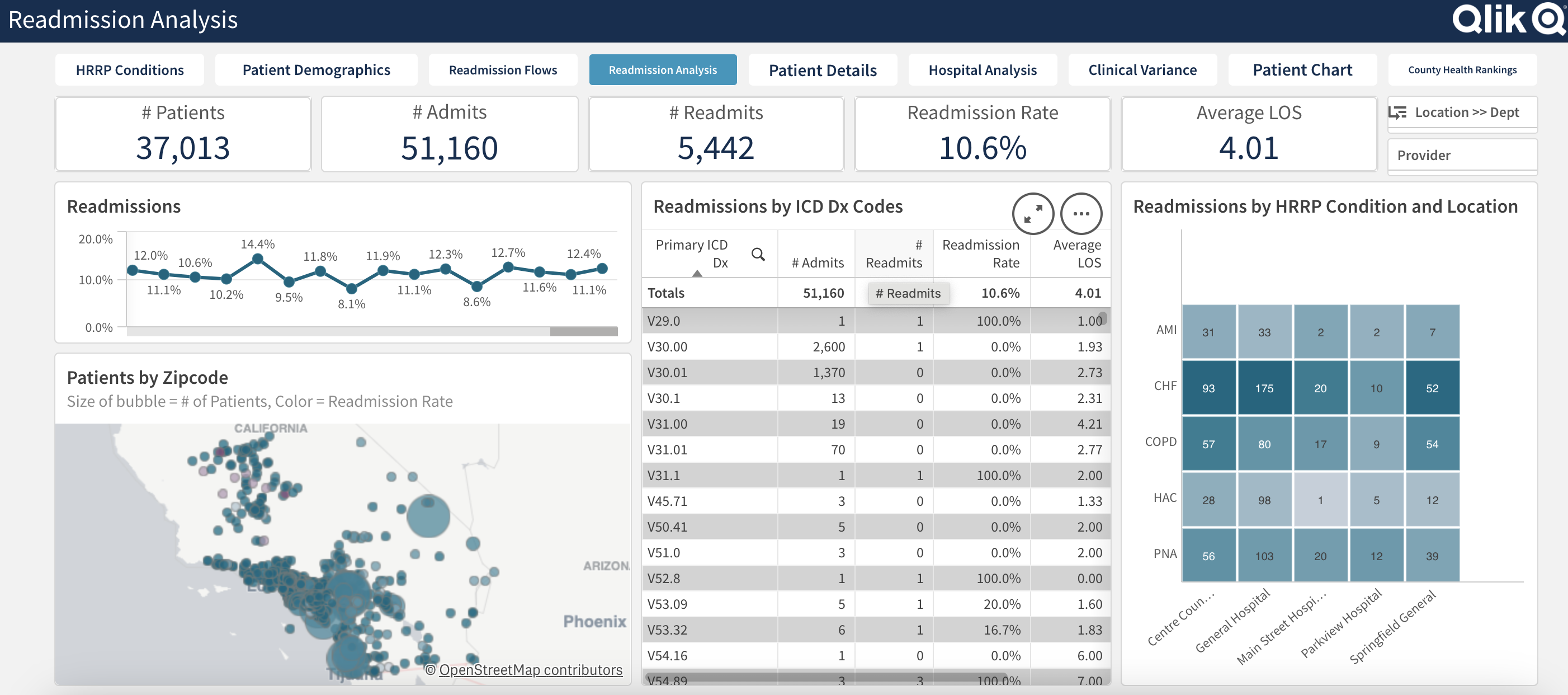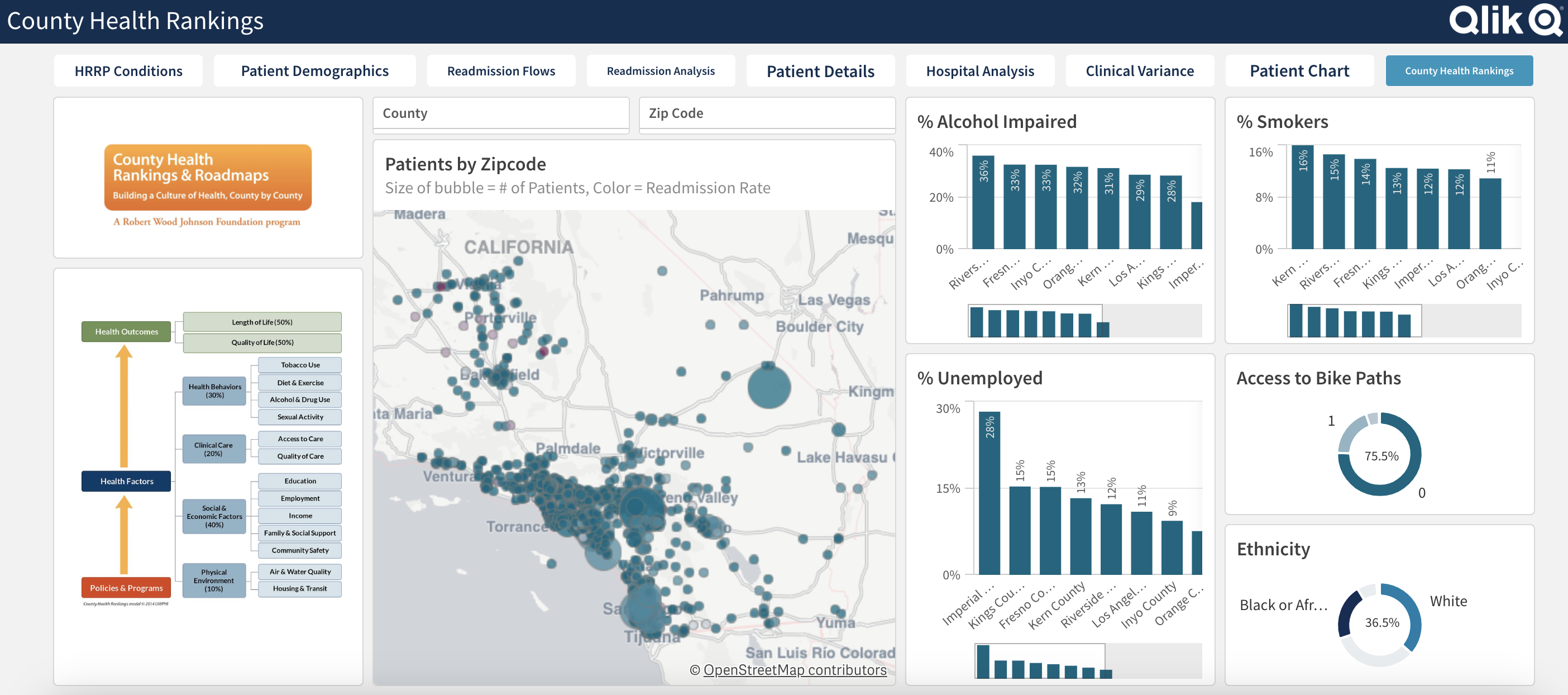Healthcare organizations bear a significant responsibility of providing top-notch patient experience and outcome at cost-effective rates. A strong data infrastructure, a data-driven culture, and the right tools are essential for achieving this balance.
We help healthcare providers transition from fee-for-service to value-based care, demonstrating the efficacy of care with longitudinal data from multiple sources. In an industry where healthcare policy and regulation are in constant flux, providers and payers require flexible and modern data infrastructure to stay nimble and resilient.
Data and Analytics Services for Healthcare Providers and Insurers
We assist healthcare providers such as major hospital systems, home health care companies, rehabilitation services, dentists, pharmacies, and even veterinarians in integrating data from Epic, Cerner, and other EMR systems to reduce readmissions, lower average cost per case, increase patient and physician satisfaction, and enhance operational efficiency.
Develop Robust and Secure Data Infrastructure Healthcare providers require more than just reporting from EMR systems to achieve their goals. Integrating data from payer partners, public sources, and other niche data sources is essential for gaining visibility into the progress of their missions.
We can construct the data infrastructure required to support data scientists, analysts, administrators, regulators, clinicians, and others
Executive Dashboards
Analyze staffing levels, patient turnover, wait times, financials, quality, and workforce data to optimize efficiency.
Enhance Patient Experience
Facilitate the sharing of relevant patient history and care data between healthcare providers to improve personalized patient care. Attain a unified view of patients by integrating clinical, insurance, and demographic data while guaranteeing patient confidentiality with secure reporting systems.
Optimize Patient and Provider Costs
Examine inventory, supply, and vendor data to unearth cost-saving opportunities and streamline the supply chain.
Monitor Multiple Hospitals, Clinics, Locations
Integrate data across multiple hospitals, clinics, and functional areas (clinical care, finance, research, operations, etc.) to gain insights into processes and outcomes across multiple facilities.
Analytics for Healthcare Insurers
Design customized insurance plans, deliver a personalized experience for members, expedite claims, and enhance customer reporting for better decision-making regarding coverage and overall health using data.
Here are some examples of how a healthcare company could use business intelligence (BI):
Tracking patient outcomes
A healthcare company can use BI to track patient outcomes and identify which treatments are most effective. This information can be used to improve patient care and reduce costs.
Identifying high-risk patients
BI can be used to identify patients who are at high risk for certain conditions or illnesses. This information can be used to proactively manage these patients’ care and prevent future complications.
Optimizing inventory and supply chain
BI can help healthcare companies optimize their inventory and supply chain by analyzing usage data and identifying areas where costs can be reduced.
Improving operational efficiency
BI can be used to identify bottlenecks in operational processes and find ways to streamline workflows, reducing costs and improving patient care.
Personalizing patient care
BI can help healthcare companies personalize patient care by analyzing patient data and identifying the most effective treatments for individual patients.
Improving customer experience
BI can be used to improve the customer experience by analyzing patient feedback and identifying areas where improvements can be made. This can lead to higher patient satisfaction and retention rates.
Preventing fraud and abuse
BI can help healthcare companies identify patterns of fraud and abuse, such as duplicate billing or unnecessary procedures. This can help prevent financial losses and improve overall system efficiency.



